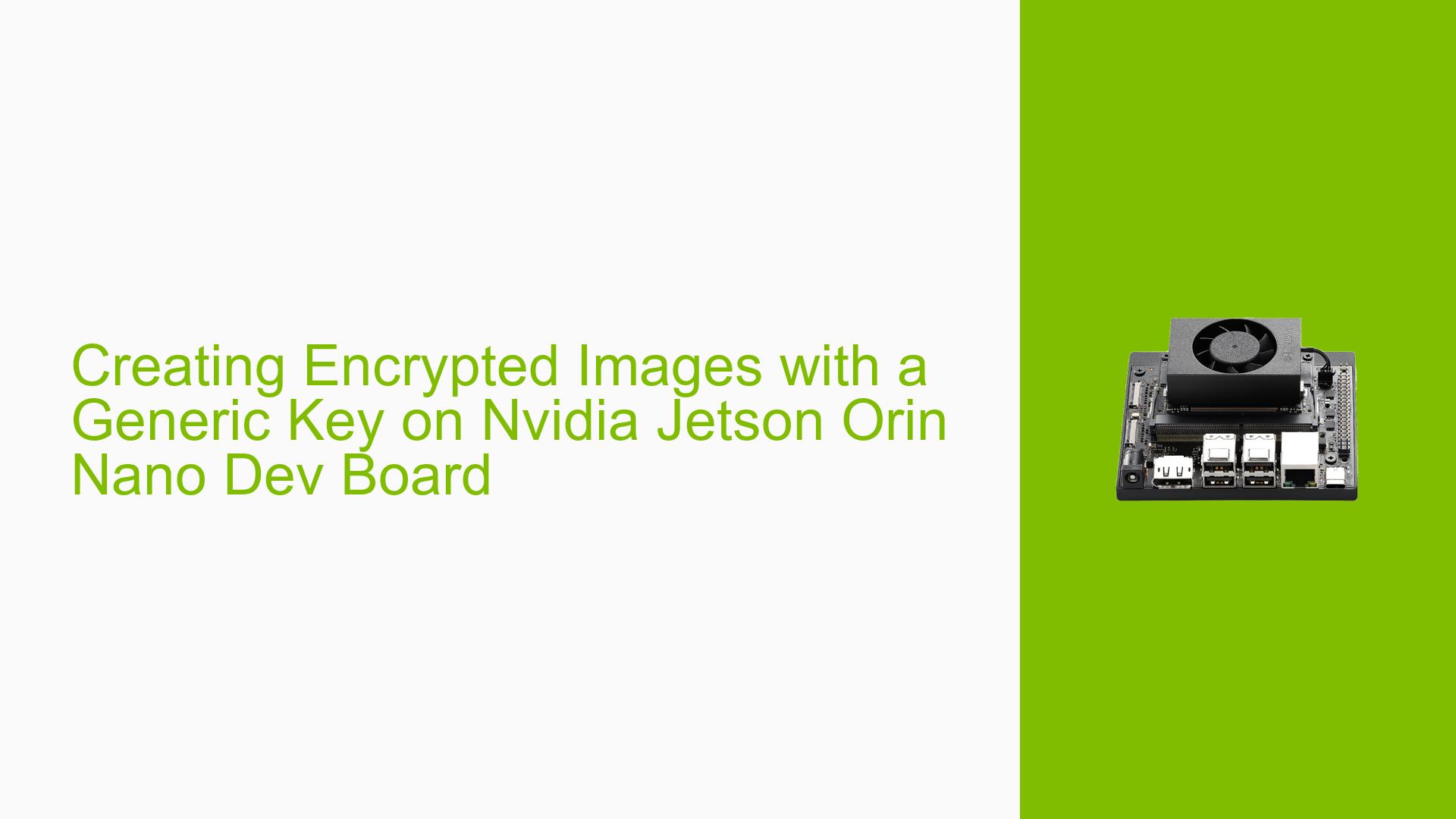Creating Encrypted Images with a Generic Key on Nvidia Jetson Orin Nano Dev Board
Issue Overview
Users have reported challenges in creating encrypted disk images with a generic key on the Nvidia Jetson Orin Nano Dev Board. The main symptoms include:
- Inability to use a generic passphrase for disk encryption, which was previously limited to unique ECIDs.
- Users have noted that this issue arises during the setup process, specifically when attempting to create encrypted images using JetPack 5.1.3 (r35.5.0).
- The problem appears to be consistent among users trying to enable disk encryption, impacting their ability to securely store data on the device.
- The issue significantly hampers user experience, particularly for those requiring secure data storage solutions.
Possible Causes
Several potential causes have been identified for the difficulties users face:
- Software Bugs or Conflicts: The JetPack version may contain bugs affecting the encryption process.
- Configuration Errors: Incorrect parameters or options during the flashing process could lead to failures in enabling encryption.
- Driver Issues: Outdated or incompatible drivers might prevent successful implementation of disk encryption.
- User Misconfigurations: Users may not be following the correct sequence of commands or settings needed for successful encryption.
Troubleshooting Steps, Solutions & Fixes
To resolve the issue of creating encrypted images with a generic key, follow these comprehensive troubleshooting steps:
-
Refer to Developer Guide:
- Ensure you are using the latest developer guide for creating encrypted images. This guide includes essential steps and commands.
-
Execute Massflash Commands:
- Use the following commands to generate a massflash package:
sudo BOARDID=3767 BOARDSKU=0000 ./tools/kernel_flash/l4t_initrd_flash.sh \ --network usb0 -p "-c bootloader/t186ref/cfg/flash_t234_qspi.xml" \ --no-flash \ jetson-orin-nano-devkit internal sudo BOARDID=3767 BOARDSKU=0000 ROOTFS_ENC=1 \ ./tools/kernel_flash/l4t_initrd_flash.sh \ --network usb0 --showlogs --no-flash --external-device nvme0n1p1 \ -S 16GiB -c ./tools/kernel_flash/flash_l4t_t234_nvme_rootfs_enc.xml \ --external-only --append -i ./disk_enc.key --p "--generic-passphrase" \ --massflash 2 jetson-orin-nano-devkit external
- Use the following commands to generate a massflash package:
-
Create and Extract Massflash Package:
- After executing the above commands, extract the generated massflash package:
sudo tar xpfv mfi_<target-board>.tar.gz cd mfi_<target-board> sudo ./tools/kernel_flash/l4t_initrd_flash.sh --flash-only --massflash 2
- After executing the above commands, extract the generated massflash package:
-
Verify Disk Encryption:
- Once flashing is complete, verify that disk encryption is enabled by checking disk usage:
df -h - Expected output should show encrypted partitions:
/dev/mapper/crypt_root 54G 5.6G 46G 12% / /dev/mapper/crypt_UDA 374M 14K 350M 1% /mnt/crypt_UDA
- Once flashing is complete, verify that disk encryption is enabled by checking disk usage:
-
Best Practices:
- Always ensure that your JetPack version is up-to-date and compatible with your hardware.
- Follow community forums for updates on known issues and resolutions.
- Consider using unique ECIDs if issues persist with generic keys.
-
Documentation and Updates:
- Regularly check Nvidia’s official documentation and forums for any updates regarding driver releases or patches that may address these issues.
-
Unresolved Issues:
- Some users may still experience difficulties even after following these steps, indicating potential unresolved bugs in the software or hardware configurations that require further investigation.
By following these structured steps, users can effectively troubleshoot and resolve issues related to creating encrypted images with a generic key on the Nvidia Jetson Orin Nano Dev Board.
